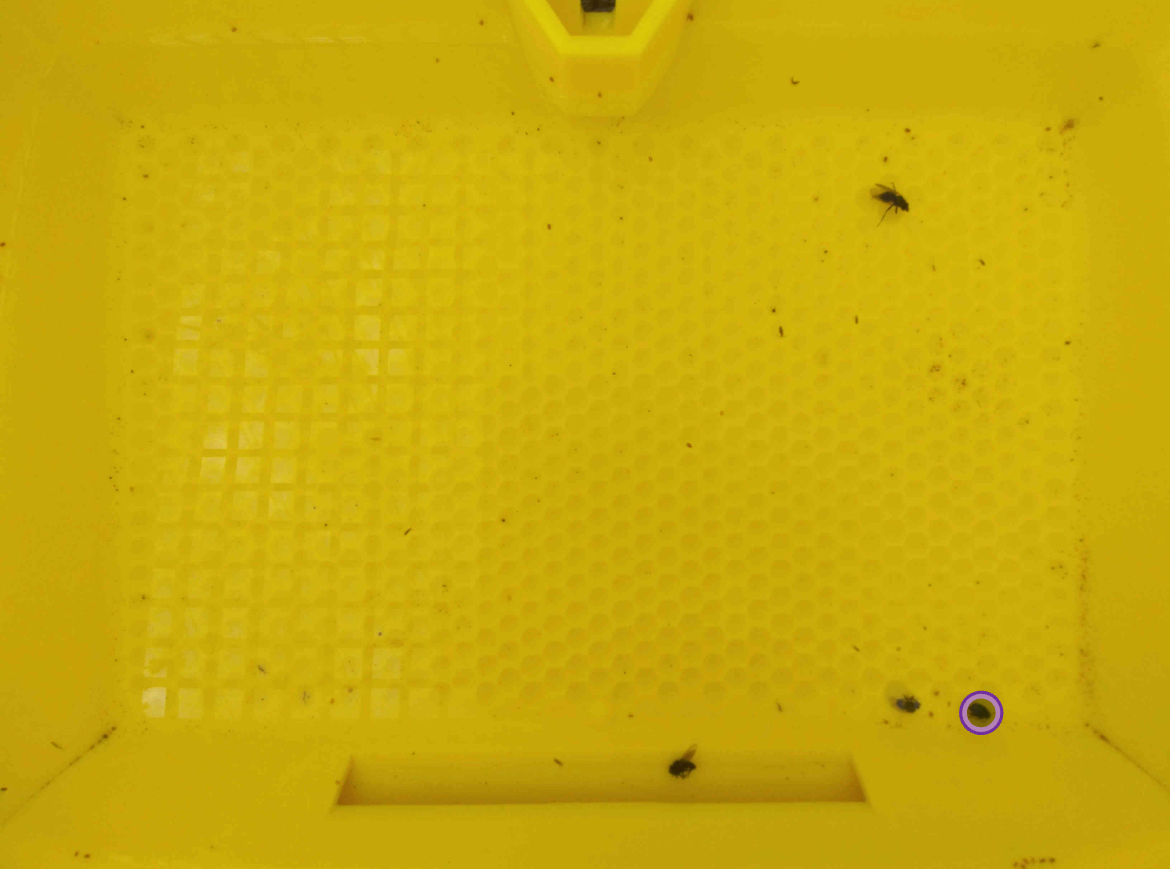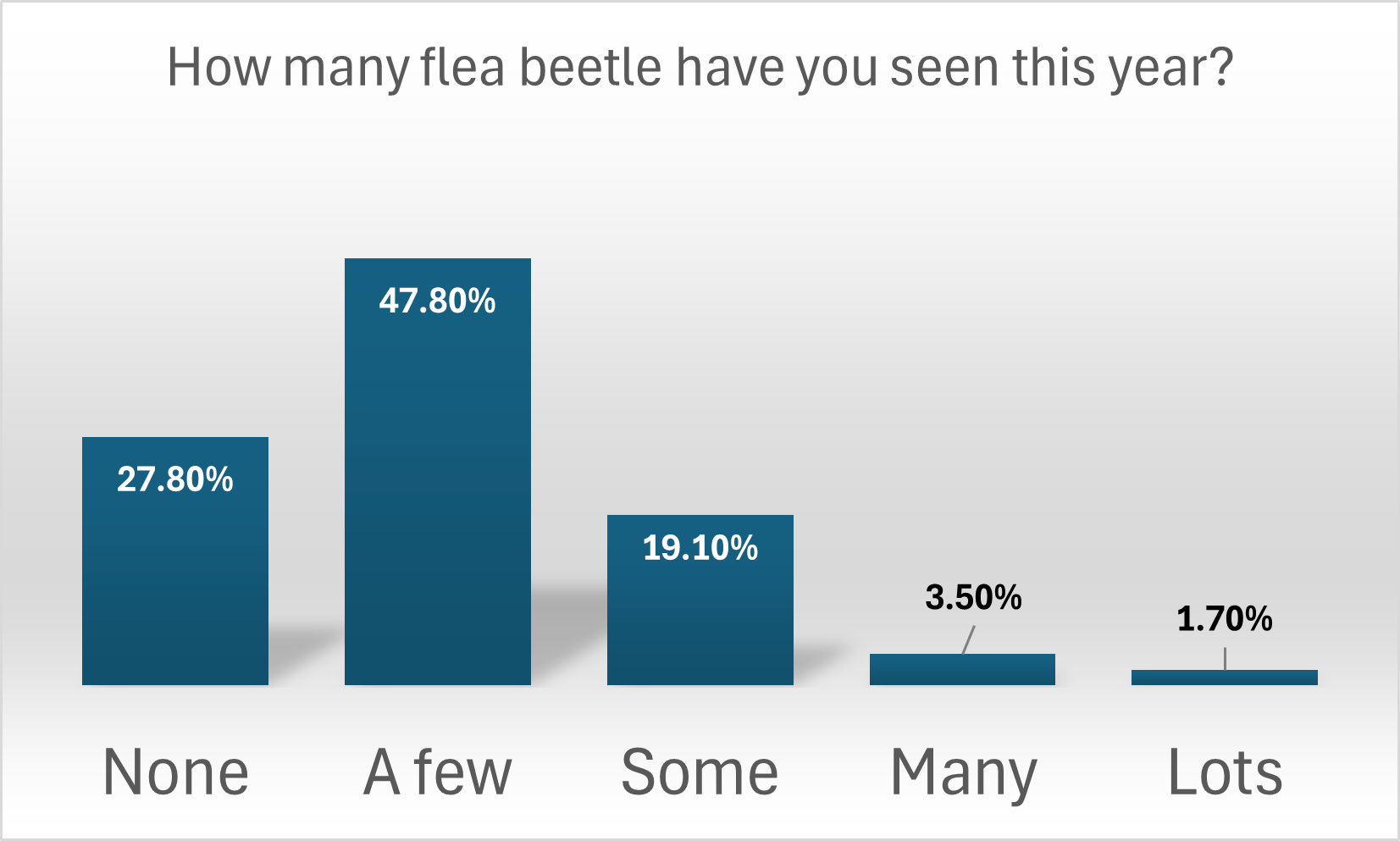As you may remember, last August and September we provided regular weekly updates on the United Oilseeds MagicTrap network showing CSFB activity both nationally and regionally. As part of the OSR Reboot initiative, those updates painted a clear picture of pest pressure being much lower than in previous years – something later confirmed by the OSR Reboot Stem Larvae survey, carried out by Niab earlier this year.
Coupled with favourable growing conditions, this translated into a very successful year for OSR yields. Our figures suggest the potential for record-breaking performance, even beating the previous 2011 record of 3.91t/ha.
MagicTrap 2025

Image: MagicTrap Warwickshire 11 September – detecting 1 flea beetle (ringed in purple)
What members are seeing
In the absence of robust MagicTrap data, we turned to our members to find out what they were seeing in their own fields. The results of our recent poll (see below) suggest a very similar situation to last year, with more than three-quarters of respondents reporting either no CSFB or only a few.
Conversations with farmers back this up: numbers generally seem low again, though as always there are hotspots where pressure is noticeably higher.
 Why might numbers be lower again?
Why might numbers be lower again?
There are probably several factors working together. Like most pests, CSFB tends to follow natural boom-and-bust cycles, so after a run of heavy pressure it’s not unusual to see numbers fall back. Last year’s very wet spring and widespread flooding may also have hit them hard. Larvae don’t cope well in waterlogged soils, and overwintering adults are likely to have struggled too. Cooler, damp springs also keep beetle activity in check, while extremes of heat or drought at the wrong time can limit their migration.
Farming practices making a difference
Post-harvest cultivations are now firmly on the radar, thanks to Niab’s research showing the effect on disturbing larvae and pupae in the soil. The United Oilseeds “call to arms” in autumn 2024 and again this year encouraged members to adopt this approach more widely, and the survey we ran at the time showed a clear response from members, with over 80% of respondents stating YES they had tried a post harvest cultivation.
Since then, wetter autumns have also forced many growers into extra cultivations and redrilling, which will have added to the disruption of the pest. Alongside this, there’s growing recognition that a fine, firm seedbed is critical for getting oilseed rape away strongly – not only improving establishment, but also helping plants withstand early CSFB pressure.
Stronger crops from the start
Seed breeders are playing their part too. The latest varieties are more vigorous out of the ground, giving crops a head start and improving their ability to shrug off early pest damage. Combined with shifting management approaches, this added crop resilience is another reason why pressure feels that bit lower.
OSR Reboot – bringing it all together
Ultimately, it’s likely the combination of natural cycles, weather, genetics and farm practice that’s keeping CSFB pressure down – but what really stands out is how much the industry has pulled together in the past year. Through the OSR Reboot, championed by United Oilseeds and backed by partners across the supply chain, growers now have a set of 10 practical strategies for managing CSFB in oilseed rape. These have been developed and endorsed by every OSR Reboot partner, giving farmers clear, evidence-backed guidance to tip the balance back in favour of the crop.
The results are starting to show: lower pest pressure, stronger establishment, and the prospect of record-breaking yields. After some difficult years, OSR is proving it still has a bright future on UK farms – and the OSR Reboot is helping to make sure that future is a sustainable and profitable one.
